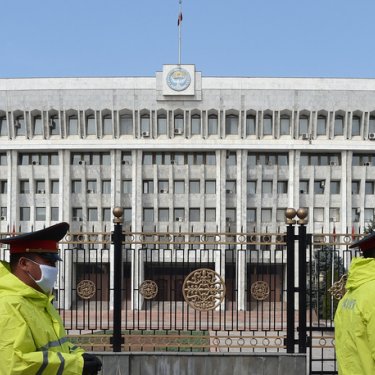RSF condemns Kyrgyzstan’s adoption of law restricting online free speech

Under the guise of fighting online disinformation, Kyrgyzstan’s president has signed a law allowing the authorities to summarily suppress information at the request of any citizen who says they are being defamed. Reporters Without Borders (RSF) calls for the immediate repeal of this law, which could be used to censor the media.
The declared aim of the new law protecting “a person’s right to honour, dignity and reputation” is to combat online fake news, but it poses a major threat to the freedom to provide news and information in Kyrgyzstan.
Anyone who claims that online content defames them is allowed by this law to ask an "authorized administrative body" to order the content’s deletion without reference to a judge. If the disputed online content is not deleted within 24 hours, the entire web page or website will be completely blocked. Internet service providers will also be required to block the disputed content.
President Sadyr Japarov signed the new law although its adoption violated Kyrgyzstan’s constitution and parliamentary procedures. After an initial version of the proposed law was rejected in June, a slightly modified version was passed by parliament in July in violation of an obligatory six-month wait before rejected bills may be reexamined.
“This law’s hasty adoption in the run-up to parliamentary elections in October suggests that it could be used to censor independent and opposition media,” said Jeanne Cavelier, the head of RSF’s Eastern Europe and Central Asia desk. “It violates the Kyrgyz constitution and international law. Public authorities cannot restrict the right to freedom of expression or determine the veracity of information without reference to a judge. As plaintiffs in defamation cases are mainly representatives of the state, this law could become a full-blown censorship tool for silencing the government’s critics. We call for its immediate repeal.”
The authorities already tried to get these provisions adopted in 2020 in a proposed law “on the manipulation of information,” which was rejected. The new law is an amended version of the earlier proposal, of which RSF voiced strong criticism at the time, sharing its concerns with the two parliamentarians behind the bill. The new version is not only dangerous but also unnecessary, as Kyrgyzstan already has a defamation law under which citizens can go to court when they think they are being defamed.
An unstable Central Asian republic with a turbulent history, Kyrgyzstan experienced revolutions in 2005 and 2010. The opposition disputed the results of the last parliamentary elections, in October 2020, resulting in large-scale protests in which journalists were attacked. The political crisis led to the election of Sadyr Japarov, an opposition leader with a populist reputation, as president in January 2021.
Kyrgyzstan is ranked 79th out of 180 countries in RSF's 2021 World Press Freedom Index.



